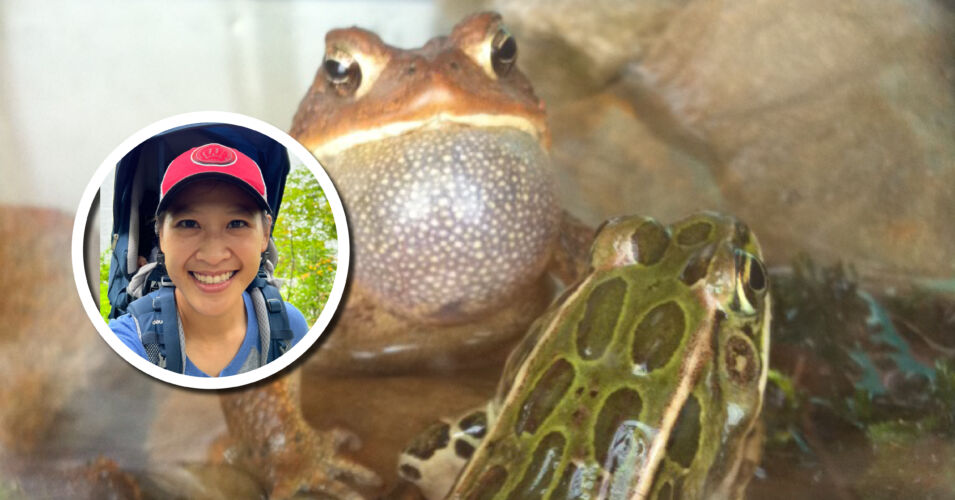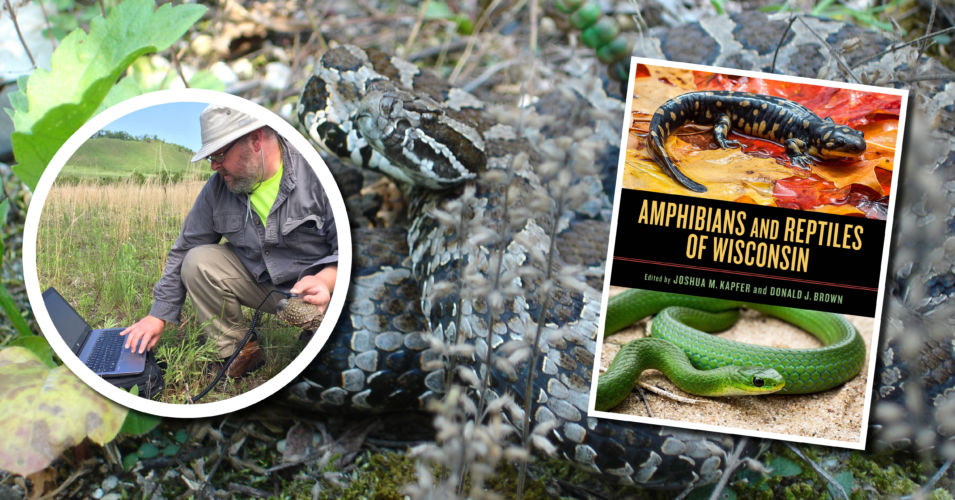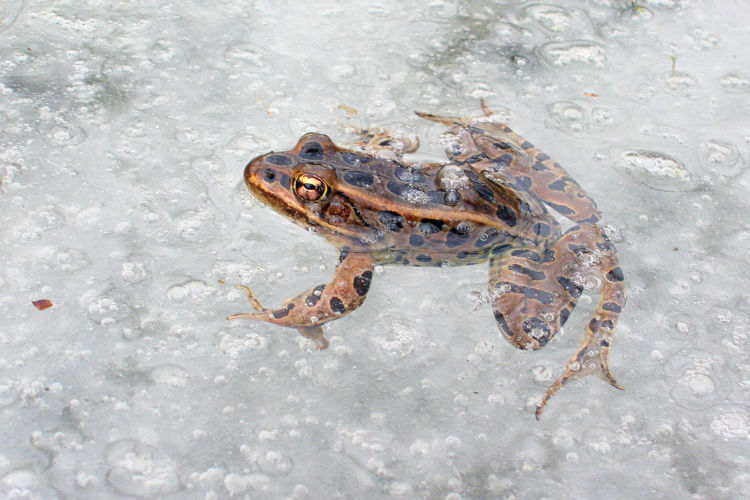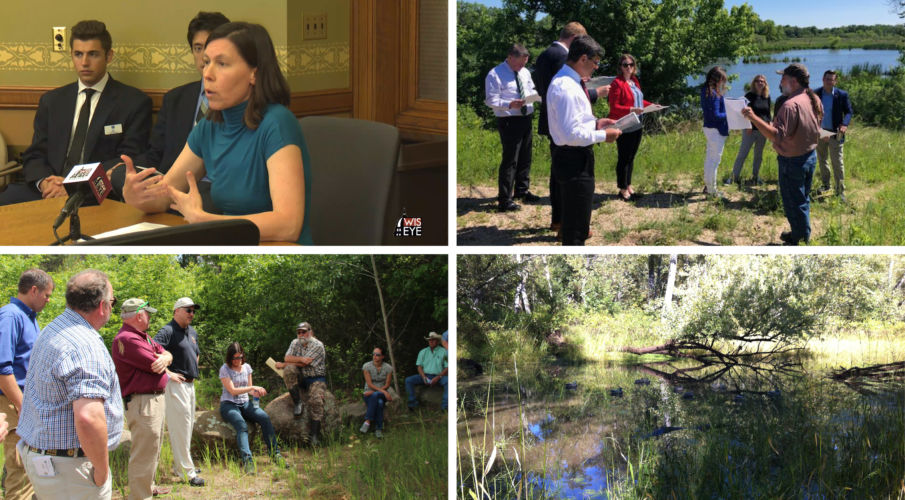Dilution is NOT the solution to pollution: How amphibians, parasites, and you can help us understand the complex effects of pollutants on wildlife
Tune in to this Wetland Coffee Break to learn about research being done in Dr. Jessica Hua’s lab at UW-Madison on unexpected negative (and positive) ways that “low” levels of pollutants (road salt, antibiotics, and pesticides) can affect amphibians and other wildlife. Dr. Hua will also describe how art and children’s books can be used to engage community members in citizen science that aims to protect amphibians, currently regarded as the most threatened vertebrate on Earth.
Jessica Hua, Department of Forest and Wildlife Ecology at UW-Madison
Recorded April 19, 2024
Dr. Jessica Hua is an associate professor in the Department of Forest and Wildlife Ecology at UW-Madison. She received her bachelor’s degree in biology and kinesiology at Southwestern University in 2008 and her PhD at the University of Pittsburgh in ecology and evolution in 2014. In 2014, she moved to Purdue University to study disease ecology as a postdoctoral fellow. In 2015, she moved to SUNY Binghamton where she was an assistant and associate professor and where she served as the Director for the Center for Watershed Studies until she moved to UW-Madison in 2022.
Related content
Wetland Coffee Break: Amphibians and reptiles of Wisconsin
How do frogs survive late spring snows?
Realizing a landscape of healthy, plentiful wetlands




